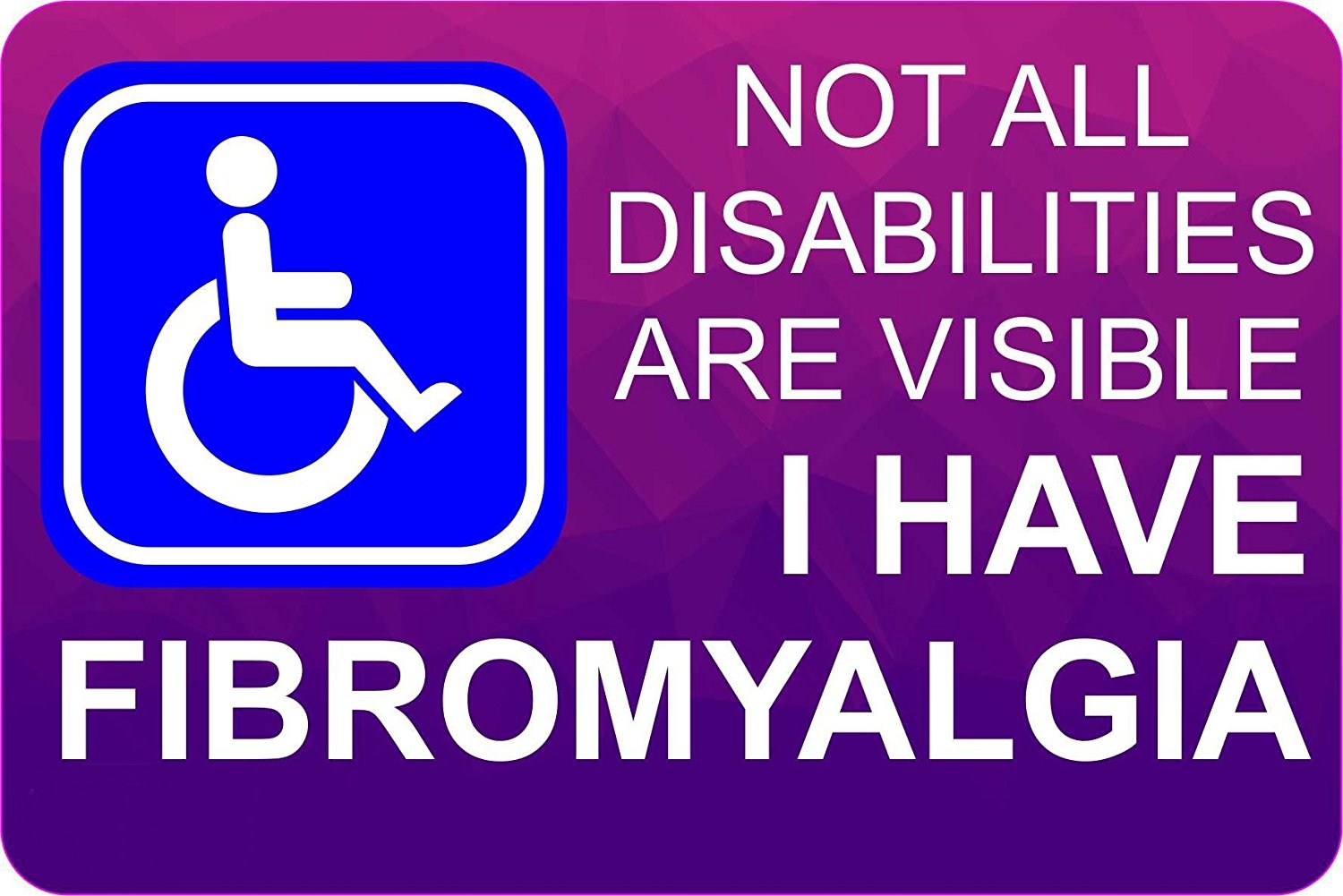
- Sell a boat

- Grand soleil

- Descriptive

SOUBISE 50 Year 2004
Owner's words

| Builder | Soubise Plaisance / FR |
| Architect | Erik Lerouge |
| Length | 14.93 m |
| Beam | 7.8 m |
| Material | Fiberglass |
| Version | Owner |
| Rig | Sloop |
| Draught | 1.10 m |
| Type of ballast | Fixed keels |
| Displacement | 8 000 kg |
| Engine(s) | Lombardini 39HP Diesel (2558 hours) Lombardini 39HP Diesel (2498 hours) |
| Fuel capacity | 400 L |
| Cabin(s) | 3 |
| Bunks | 7 |
| Water Capacity | 500 L |
| Leasing (French residents only) | No lease plan |
| First hand | yes |
| Lying | French Western Mediterranean |
Download this boat's inventory
You are going to receive an automated email containing a link to the inventory. Be sure to give us a valid address and leave your phone number so we can contact you in case of non-operation. If needed, you can reach us at +33 (0) 2 51 44 93 90 or email [email protected]

Your broker
AYC Yachtbroker
+33 (0)2 51 44 93 90
- Grand Soleil
- Long trips yacht
- Used powerboat
- Cruise catamaran
- Aluminium sailboat
- Fast cruiser
- Aluminium centerboarder sailboat
- Steel centerboarder sailboat
- Ocean racer
- Motor Yacht
- Wooden sailboat


Erik Lerouge Ville Audrin
Used yachts for sale, sail catamarans 40ft > 50ft, erik lerouge boats for sale.


Search boats for sale
Lerouge VIK152 (sailboat) for sale

Other media
Boat data Lerouge VIK152
Technical data, buy lerouge vik152 - equipment sailing catamaran - sailboat for sale, lerouge vik152 - info without obligation - sailing catamaran.

Other boats (like Lerouge VIK152) - for buy and for sale

Neel Trimarans 47

Neel Trimarans 52

These sailboats could also be of interest to you
2005 Custom Eric Lerouge Catamaran
$499,500.

"Leilani" is a 51 - foot catamaran designed by Eric Lerouge for performance and luxury cruising. She was custom built in Belgium by Brazapi in 2005 . Recent haulout and all new standing rigging.
Specifications
Additional info, basic boat info, engines / speed.
- Make: YANMAR
- Model: 4JH3-TE #11040
- Fuel: Diesel
- Engine Power: 75hp
- Type: Inboard
- Engine Location: Port
- Drive Type: SailDrive
- Engine Hours: 1,300
- Model: 4JH3-TE #14341
- Engine Location: Starboard
- Request Info
Contact Form Submission
Send request.
We have placed cookies on your device to help make this website better.
You can use this tool to change your cookie settings. Otherwise, we’ll assume you’re OK to continue.
Some of the cookies we use opens in a new tab/window are essential for the site to work.
We also use some non-essential cookies to collect information for making reports and to help us improve the site. The cookies collect information in an anonymous form.
To control third party cookies, you can also adjust your browser settings opens in a new tab/window .

Boats for Sale
51' custom erik lerouge catamaran catamaran.

ARCHIVED: This is a previously listed vessel and is no longer offered for sale
- Specifications
Connecting with Marinesource.com
Copyright 1992-2024 MarineSource Network, Inc. All Rights Reserved.
Want to publish your ad on Waa2?
I want to get mails about Recently added "lerouge catamaran" ads.
I agree with the Terms of use and Terms of Privacy .
Publication date
- Last 15 Days
- Most popular
- Most recent added
- Lower price
Price (min)
- 100.000 USD
- 125.000 USD
- 150.000 USD
- 175.000 USD
- 200.000 USD
- 225.000 USD
- 250.000 USD
- 275.000 USD
- 300.000 USD
- 350.000 USD
- 400.000 USD
- 450.000 USD
- 500.000 USD
- 600.000 USD
- 700.000 USD
- 800.000 USD
- 900.000 USD
- 1.000.000 USD
- 1.100.000 USD
- 1.300.000 USD
- 1.500.000 USD
- 1.700.000 USD
- 2.000.000 USD
- 2.500.000 USD
Price (max)
Hull Material
Length (min)
Length (max)
lerouge catamaran for sale
- lerouge catamaran

Ksenia-Yachts Ksenia149
Ksenia-yachts ksenia149.
Fast cruising catamaran built in 2010 by the Ksenia-Yachts shipyard, Sandwich Airex epoxy, designed by Erick Lerouge , three-cabin...

Lerouge VIK152 (sailboat) for sale
Lerouge vik152.
This KSENIA 152 / VIK152 Eric Lerouge design was professional build in Vinylesther-Composite at the KSENIA-Yard in Belgium, under Eric Lerouge ...

Erik Lerouge Ville Audrin
Erik lerouge.
Erik Lerouge ( 1986) Rebuild 2021

1986 Eriksson Ville Audrin Erik Lerouge , EUR 179.000,-
Real sailing Catamaran Build in 1986 by Erik Lerouge , but completely renewed 2020/2022. And constantly updated.( see list in inventory) She...

Catamaran - 52S - Flash Catamarans - cruising
Flash catamarans catamaran.
Flash Catamarans presents its new high-performance catamaran , the Flash Cat 52 Sailing. This boat is designed by the prestigious...

Ocean Catamarans 48.8
Ocean catamarans 48.8.
Located: Gold Coast, Queensland AustraliaNo Tears | 2005 Ocean Cat 48.8"No Tears" is a perfectly setup ocean-going catamaran featuring outstanding...

OCEAN CATAMARANS 48.8
Ocean Catamarans 48.8Located: Gold Coast, Queensland AustraliaNo Tears | 2005 Ocean Cat 48.8"No Tears" is a perfectly setup ocean-going catamaran ...

1988 Catamaran AZULI 40 | 37ft
Catamaran azuli 40.
AZULI 40 , construit par le chantier soublse; un plan de l'architecte Erik Lerouge symbolique de son coup de patte ! nacelle haute, coques fines,...

2000 Catamaran Freydis 43 Larimar | 45ft
LARIMAR is a rare racer-cruiser catamaran , crafted by the renowned designer Erik Lerouge and built to high standards at the...

O Yachts Class 6 (2024) For sale
With just 14.800kg of displacement the O-Yacht Class 6 is one of the lightest and best performing 60' catamarans on the oceans. This most recommended...

Ksenia Yacht 149 (sailboat) for sale
Ksenia yacht 149.
Fast cruising catamaran built in 2010 by the Ksenia-Yachts shipyard, designed by Erick Lerouge , three-cabin version, rotating carbon...

LARIMAR is a rare racer-cruiser catamaran , crafted by the renowned designer Erik Lerouge and built to high standards at the Soubise...

Custom Catman 28
CATAMARAN CATMAN Plan Lerouge - 8.20M HT X 5.00M - 1986 - POLYESTER Mât-aile alu rotatif 12.50 m GV Incidences fullbatten dacron...

Ksenia yacht Ksenia 149

VILLE AUDRAIN 42/45
Ville audrain 42 45.
Ville Audrain 42/45 catamaran built in Epoxy sandwich, Divinycell foam in 1986 on Erik Lerouge designer and build by the Ville...

Ville Audrain 42/45
Ville audrain 42 45, related searches "lerouge catamaran" :.
The information we receive from advertisement sites may vary. Therefore, when you go to the listing site, you may not always find the same offer that you see on waa2.
- Add Your Listing
- Terms of Privacy
- Terms of use
- About

Popular Sailboat Models
- Bavaria Cruiser 46
- Fountaine Pajot Saona 47
- Beneteau Oceanis 45
- Beneteau 50
- Catalina 30
Popular Powerboat Models
- Sea Doo Speedster
- Sea Ray Sundancer 320
- Bayliner Vr5
- Beneteau Antares 11
- Malibu Wakesetter 23 Lsv
- Boston Whaler 170 Montauk
- Princess V65
- Jeanneau Nc 1095
Feedback! ▼
Waa2 login to your account, register for free, forgot password.
Would you also like to receive alerts for these other related searches?
catamaran lerouge
lerouge trimaran
erik lerouge
lerouge pulsar 33
endeavour catamaran sail
Waa2 uses our own and third-party cookies to improve your user experience, enhance our services, and to analyze your browsing data in order to show you relevant advertisements. By continuing browsing please note you are accepting this policy. You are free to change the settings or get more information here >>> OK
- Classified ads
- Last magazine
- Technical Specifications
- Legal notices
- Website map
- Classified ad
Brazapi 41’ Eric Lerouge Design
- +49 421 620 83 32
- www.cat-sale.de/
- Lying Germany
Practical Information
- Finance your new boat
- Insure your new boat

Description
2008 build and launched MAKELIJ NV / Belgium Best performing elegant three-cabin-owners-version 12,44m x 7,54m x 1,152m, 5,8to, 2x27HP YANMAR Diesel Well maintained and up-dated, offering best sailing performance Lying Germany North-sea € 220.000,-- incl. VAT
Contact the seller
Share this advert
Add to favorites.
You added " " to your favorites.
You have deleted " " de vos favoris.
You are using an outdated browser. Please upgrade your browser to improve your experience.
- Sailing Blogs
- List Your Catamaran For Charter
- List Your Catamaran For Sale
Erik Lerouge

O-Yachts Class 4
- Privacy Overview
- Strictly Necessary Cookies
- Cookie Policy
This website uses cookies so that we can provide you with the best user experience possible. Cookie information is stored in your browser and performs functions such as recognising you when you return to our website and helping our team to understand which sections of the website you find most interesting and useful.
Strictly Necessary Cookie should be enabled at all times so that we can save your preferences for cookie settings.
If you disable this cookie, we will not be able to save your preferences. This means that every time you visit this website you will need to enable or disable cookies again.
More information about our Cookie Policy
Catamarans for sale :

LEROUGE XSENIA 149

CATAMARAN LUCAS 50′

AIKANE 56′

TS52′

NAUTITECH 47

CATATHAI 40-43′

LAGOON 52 F

POWER CAT CAROFF 13,30 (VENDU)

SWITCH 51′

SAIGA 46′ (VENDU/SOLD)

BMS 33′

0’YACHT CLASS 6

KELSALL TROPIC 32′

CAT FLOTTEUR 41′

GALILEO 41 (VENDU)

CATAMARAN KURT HUGUES 14m (BIENTOT À LA VENTE ICI)

OUTREMER 40 (vendu)

CATANA 42 (vendu)

CAT FLOTTEUR 41-43 (vendu)

OUTREMER 50 SL (vente suspendue)
speech problems jumbled words
- Slurred Speech
6 Causes of Slurred Speech

- Most common questions
What is slurred speech?
Slurred speech quiz.
Take a quiz to find out what's causing your slurred speech.
6 most common cause(s)
Slurred speech is when you have trouble speaking, your words are slow or garbled, or your words run together. When you talk, many components of your nervous system work together to form words. When these parts don’t work correctly, your speech can become distorted, or “slurred.” The medical term for slurred speech is dysarthria.
Slurred speech includes problems pronouncing words and regulating the speed or pace of your speech. It can range from a barely noticeable problem to one that’s so severe that others can’t understand what you’re saying.
People often describe slurred speech as feeling like you’re trying to talk with your mouth full of marbles.
Common causes of slurred or slow speech include drinking too much alcohol and not getting enough sleep. In these cases, the slurring will stop once you’re sober again and have gotten rest, respectively.
There are also other causes of slurred speech such as a stroke (a medical emergency), brain tumor, Bell’s palsy, or a serious migraine.
Does slurred speech always need to be treated?
"People often think slurred speech is a minor symptom that does not need a medical evaluation. As our speech and ability to speak is our main form of communication, it is important to look for correctable causes." — Dr. Karen Hoerst
Should I go to the ER for slurred speech?
You should call 911 if:
- Your slurred speech starts suddenly.
- You have other symptoms, such as a sudden or severe headache and weakness or numbness of one side of your body.
- Your tongue, face, or lips are swelling, which could mean you’re having an allergic reaction.
Slurred speech emergency quiz
Take a quiz to find out if your symptoms are an emergency.
Take emergency quiz
1. Stroke or TIA (transient ischemic attack)
- Slurred speech
- Drooping of one side of the face
- Weakness or trouble controlling one side of the body
- Numbness in the face , arm , or leg
- Difficulty walking
- Sudden loss of vision or double vision
- Sudden, severe headache
A stroke occurs in the brain because the blow flow in a blood vessel is blocked. It can also happen when a blood vessel ruptures or leaks. This affects the blood supply to parts of the brain, which leads long-term damage. If it affects the area of the brain responsible for speech, it can cause slurred speech.
A transient ischemic attack , or TIA, is sometimes called a "mini stroke." A TIA is a temporary interruption of blood flow that causes the same symptoms as a stroke, but improves without any permanent damage to the brain or symptoms.
For example, if you have slurred speech because of a TIA, once the blood flow is restored to that area of the brain, the slurred speech goes away. But people who have a TIA are at a high risk of having a stroke in the future, especially if their risk factors are not treated. Risk factors are the same for stroke and TIA and include smoking, obesity, and cardiovascular disease.
It’s extremely important to call 911 right away if you suddenly have slurred speech. Getting immediate treatment is critical to minimizing permanent damage. Paramedics can begin treating you in the ambulance on the way to the hospital, so it’s better to call 911 than go to the ER yourself.
Treatments for strokes and TIAs include medications to break up blood clots and surgery to remove blood clots from the vessels. If your stroke is from bleeding in the brain, you may need surgery to repair a blood vessel.
Following treatment, your doctor will recommend medications to prevent another TIA or stroke. These typically include drugs that prevent clots from forming in the blood (like aspirin or other blood thinners) and cholesterol medication to prevent plaque from building up on the walls of the blood vessels. You may also need to take medication to control your blood pressure.
Speech therapy is recommended to help treat problems with speech.
It may not be a stroke
"There are so many possible causes of slurred speech. Most of the time we need a detailed history and physical exam to guide the diagnosis and treatment." — Dr. Hoerst
Take symptoms quiz
2. Bell’s palsy
- Drooping of the face
- Drooping of the eye
- Changes in taste or hearing
Bell’s palsy is a relatively common condition that affects the facial nerve, which is responsible for movement of your face.
In Bell’s palsy, the nerve gets inflamed typically because of a recent viral infection. This inflammation can cause the facial nerve to not work as well, leading to drooping and slurred speech.
Bell’s palsy usually improves in a few months, but medications such as steroids and antiviral drugs are typically given to help speed the process. If nerve problems continue, physical therapy is recommended. In rare instances, surgery may be needed to help improve facial muscle function.
3. Brain tumor
- Slurred speech or speech difficulties
- New or changing headaches
- Weakness or coordination and balance problems
- Abnormal vision
A brain tumor is an abnormal growth of cells in the brain. A brain tumor may be cancerous (malignant) or noncancerous (benign). Both types can cause symptoms including slurred speech.
The diagnosis of a tumor in the brain or spinal cord is based on an exam and imaging of the brain, such as an MRI or CT scan. A biopsy (tissue sample) may be needed to determine what type of tumor it is.
Some tumors, such as a small noncancerous tumor, do not need treatment, though your doctor will recommend periodic MRI scans to make sure it hasn’t changed.
Most larger or cancerous tumors do require treatment, which may consist of chemotherapy, radiation, or surgery. If you develop physical or cognitive (mental) problems from the tumor, rehabilitation such as physical therapy, occupational therapy, or speech therapy may be needed.
4. Multiple sclerosis
- Blurred vision or decreased vision, typically in one eye
- Weakness or trouble walking
- Numbness or pins-and-needles sensation on your face, arm, or leg (typically on one side)
- A band-like squeezing sensation around the chest or abdomen
- Difficulty focusing
Multiple sclerosis, or MS, is a central-nervous system disease that affects the cells of the brain and spinal cord. In MS, a fatty tissue that surrounds nerve fibers (myelin) is attacked. Myelin helps to insulate the electrical signals sent through the nerves. When there is a problem with this fatty tissue, information sent to and from the brain can be disrupted.
MS is most common in young adults between the ages of 20 and 50, according to the National MS Society .
MS is not curable , but treatments have dramatically improved the ability to control MS, so people usually have fewer symptoms and less disability.
Treatment includes medications that may be taken orally or injected or infused through an IV line. Physical therapy and speech therapy are commonly used to help in physical recovery, and medications can be used to treat other symptoms, such as depression, pain, and fatigue.
5. Amyotrophic lateral sclerosis (ALS)
- Difficulty with speech, including slurred speech
- Progressive weakness and difficulty balancing
- Muscle cramps, twitching, and stiffness
- Difficulty swallowing
Amyotrophic lateral sclerosis (ALS) is also known as Lou Gehrig’s disease. It affects nerve cells called motor neurons that control your movement.
The disease primarily causes a loss of strength, impaired swallowing and speech, and in most cases, difficulty breathing because of impaired respiratory muscles. It is a progressive disease, meaning that symptoms are mild at first and worsen over time.
Previously, it was thought that ALS doesn’t affect a person’s mental ability. But it’s now known that people with ALS can get a specific type of dementia called frontotemporal dementia (FTD). That condition can affect behavior, mood, and speech.
Symptoms of ALS can develop in adults of any age, but it’s most commonly diagnosed in people who are between the ages of 40 and 70, according to the ALS Association .
While there are some medications that can be used to delay the progression of the disease, there is currently no cure for ALS. Treatment includes rehabilitation with physical therapy, occupational therapy, speech therapy, and respiratory therapy.
6. Migraine
- Sensitivity to light and sound
- Visual disturbances
A migraine causes a severe headache that is often accompanied by nausea and sensitivity to light or sound. But some migraines don’t cause head pain.
Other symptoms that involve the nervous system can occur. Some of these sensory symptoms are called “auras.” These distortions can cause visual changes , including flashing lights or distorted vision. People may feel tingling or numbness of their face, arm, or leg.
In some types of migraine, people may even develop slurred speech and weakness of the face, arm, or leg. These are also symptoms of a stroke, so it may be hard to figure out which condition you have. If you develop sudden slurred speech or weakness, go to the ER immediately.
In an acute migraine attack, medications can be used to stop a migraine that has already started, such as triptans or newer medications called CGRP inhibitors. These medications can be in pill form, inhaled form, or injectable medications.
Migraine prevention can include taking medications for blood pressure, anticonvulsants, or even antidepressants. In some instances, Botox treatments are used to prevent migraine.
Behavior and lifestyle changes such as exercise, improved sleep, and healthy diet or weight loss are also often recommended to help decrease the number of migraine headaches you experience.
Other possible causes
Slurred speech may occur from alcohol intoxication or tiredness. It can also be a side effect of medications like high dose pain medications, antipsychotic medications or even some allergy medications like antihistamines. Other causes include:
- Infections such as urinary tract infections or electrolyte imbalances (particularly in elderly people).
- Brain infections such as meningitis or encephalitis.
- Problems that affect your mouth or throat, such as poorly fitting dentures, dental infections, dental numbing medications, swelling in your throat, or muscle or nerve problems.
- An allergic reaction , especially if you notice slurred speech along with tongue swelling , lip swelling, or shortness of breath.
"Early speech therapy can not only help with early improvement but also with diagnosis. Speech-language pathologists have special training in detecting the various types of slurred speech, which helps to determine the possible causes."— Dr. Hoerst
Specialty treatment options
- Speech therapy is the most common treatment for slurred speech.
- Injected medications such as Botox are sometimes used, depending on the cause of slurred speech.
- Medications to improve nerve and muscle function.
While it's important to follow your healthcare provider's guidance, here are some over-the-counter (OTC) options that might provide extra support.
- Proper nutrition supports overall health, including nerve function. Supplements like B vitamins may support neurological health.
- Staying hydrated is key, especially if speech difficulties make it hard to drink. Consider a no-spill, easy-sip water bottle designed for easy grip.
- Engaging in exercises to improve speech clarity can be helpful. Explore speech therapy tools and resources that you can use at home.
Slurred speech treatment quiz
Take a quiz to find out how to treat your symptoms.
Take treatment quiz
Required field
Was this article helpful?
Learn About the 50 Essential Biomakers that Determine Your Health, Energy, and Lifespan
- Anxiety Symptoms
- Make Appointment
- Available Therapists
- Rates and Terms
- Health Insurance?
- Why Therapy?
- Anxiety Therapy
- Jim Folk’s Anxiety Story
- About Anxietycentre.com
- Anxietycentre Recovery Support
- Why Join Recovery Support
- Money Back Guarantee
Mixing Up Words When Speaking Anxiety Symptoms

Mixed up words when speaking anxiety symptoms description:
Anxiety disorder can cause many problems, including getting words mixed up with speaking. Here are some descriptions of the mixed up words anxiety symptom:
- When you go to speak, even though you are thinking clearly, it seems when you say the words they come out mixed up, backwards, or flipped around.
- When speaking you notice that your words get mixed up even though you knew what you wanted to say.
- Sometimes you find that you mix up your words or that what you said didn’t make sense.
- You unintentionally mix up your words when speaking.
- Your words get mixed up frequently and it seems there’s nothing you can do to stop it.
- When you’ve mixed up your words, others found it funny but you may have become concerned that you might have a mental problem developing.
- Even though you think through your thoughts carefully, your words get mixed up when you speak them.
- You find that you are frequently mixing up your words, and this is beginning to bother and worry you.
- Others may point out that you are mixing up your words when speaking, which you didn’t seem to be aware of.
- You are getting your words backwards, mixed up, jumbled, and out of correct order.
This mixing up words when speaking anxiety symptom can affect only certain topics, many topics, or everything you are talking about.
This mixing up words when speaking anxiety symptom can come and go rarely, occur frequently, or persist indefinitely. For example, you may get your words mixed up once and a while and not that often, get them mixed up off and on, or get them mixed up all the time.
This mixing up words when speaking anxiety symptom may precede, accompany, or follow an escalation of other anxiety sensations and symptoms, or occur by itself.
This mixing up words when speaking anxiety symptom can precede, accompany, or follow an episode of nervousness, anxiety, fear, and elevated stress, or occur ‘out of the blue’ and for no apparent reason.
This mixing up words when speaking anxiety symptom can range in intensity from slight, to moderate, to severe. It can also come in waves, where it’s strong one moment and eases off the next.
This mixing up words when speaking anxiety symptom can change from day to day, and/or from moment to moment.
All of the above combinations and variations are common.
This mixing up words anxiety symptom can seem much worse when overly stressed, overly anxious, when tired and fatigued, and/or when sleep has been disrupted and/or short.
---------- Advertisement - Article Continues Below ----------
---------- Advertisement Ends ----------
What causes the mixing up words when speaking anxiety symptoms?
Anxiety (behaving apprehensively) activates the stress response . The stress response (also often referred to as the Emergency Response) immediately causes a number of physiological, psychological, and emotional changes that enhance the body's ability to deal with a threat - to either fight with or flee from it - which is the reason the stress response is also often referred to as the fight or flight response.
A part of the stress response changes include a change in brain function where the areas of the brain responsible for dealing with danger increase their activity and the areas of the brain responsible for rationally processing information become suppressed. This change is designed as part of the body’s survival mechanism because it’s better that we react to danger quickly rather than remain in the middle of danger trying to figure things out.
Recovery Support members can read more about the exact physiological, psychological, and emotional changes in the ‘Hyperstimulation And Its Effects’ section in Chapter 14.
As a result of these emergency response changes, our awareness and sensitivities to danger are heightened and our ability to rationalize, think clearly, and act clearly are diminished. This is often the reason people seem like they are stunned or like a ‘deer caught in the headlights’ when they are in dangerous situations and/or when overly anxious. It’s not because they are experiencing some sort of mental issue but that being afraid has caused this emergency response change in brain function.
When stress responses are active, we can experience a wide range of abnormal actions, such as mixing up our words when speaking. Many anxious and overly stressed people experience mixing up their words when speaking. Because this is just another symptom of anxiety and/or stress, it needn’t be a need for concern. Mixing up words is not an indication of a serious mental issue. Again, it’s just another symptom of anxiety and/or stress.
Similar to how mixing up words can be caused by an active stress response, it can also occur when the body becomes stress-response hyperstimulated (overly stressed and stimulated). So even though you may not feel anxious or stressed, this symptom can still occur if your body is stress-response hyperstimulated.
Again, Recovery Support members can read more about why anxiety symptoms occur, persist, and why they can take so long to get rid of in the ‘Hyperstimulation And Its Effects’ section in Chapter 14, among other chapters in the Recovery Support area .
How to get rid of the mixing up words when speaking anxiety symptoms?
When the mixing up words anxiety symptoms are caused by apprehensive behavior and the accompanying stress response changes, calming yourself down will bring an end to the stress response and its changes. As your body recovers from the active stress response, this symptom should subside and you should return to your normal self. Keep in mind that it can take up to 20 minutes or more for the body to recover from a major stress response. But this is normal and shouldn’t be a cause for concern.
When the mixing up words anxiety symptoms are caused by hyperstimulation, eliminating the body’s overly stressed state will cause this symptom to diminish and eventually disappear.
Nevertheless, when the body has fully recovered from an active stress response or stress-response hyperstimulation, ALL anxiety symptoms diminish and eventually disappear, including the mixing up words when speaking anxiety symptom.
Since mixing up words when speaking is just an indication of stress, an active stress response, and/or hyperstimulation, it needn’t be a cause for concern. It will subside when you’ve successfully addressed your anxiousness, your body’s stress, or your body’s hyperstimulated state.
You can speed up the recovery process by reducing your stress, practicing relaxed breathing, increasing your rest and relaxation, and not worrying about this symptom. Sure, mixing up words when speaking can be unsettling and even bothersome. But again, when your body has recovered from the stress response and/or sustained stress, it will completely disappear.
Tips for more immediate relief from the mixing up words symptom.
In the meantime, there are some things you can do to minimize the mixing up words symptom. For example:
- Calm yourself before speaking. Calming yourself can bring a reverse to the changes brought about by the stress response. This will allow brain functioning a better chance of returning to normal functioning, which can make it less likely to mix up words.
- Slow down the pace of your speech so that your words are more deliberate.
- Speak slowly and evenly when speaking.
- Take a deep breath and exhale slowly before speaking. This can trigger a natural tranquilizing effect that can reverse the effects of the stress response.
- Deliberately slow your thinking down. This can result in more deliberate speaking.
- Take your time with your words. The more rushed and thoughtless you are when speaking, the more likely it is that you might mix up your words.
- Pause before you speak. Pausing can help you collect your thoughts, which can reduce the likelihood of mixing up words when you speak.
- Keep your focus on what you are saying rather than thinking of the next thing to say or imagining what the other person will say.
- Cut yourself some slack. Everyone mixes up words from time to time. This is just part of our imperfect humanness.
While the above tips may not eliminate this symptom entirely in the short-term, it can minimize its effect until the body has returned to normal, non-hyperstimulated health.
If you are having difficulty containing your worry, you may want to connect with one of our anxiety disorder therapists, coaches, or counselors. Working with an experienced anxiety disorder therapist, coach, or counselor is the most effective way to overcome what seems like unmanageable anxiety and symptoms.
For a more detailed explanation about all anxiety symptoms, why symptoms can persist long after the stress response has ended, common barriers to recovery and symptom elimination, and more recovery strategies and tips, we have many chapters that address this information in the Recovery Support area of our website.
Common Anxiety Symptoms
- Heart palpitations
- Dizziness, lightheadedness
- Muscle weakness
- Numbness, tingling
- Weakness, weak limbs
- Asthma and anxiety
- Shooting chest pains
- Trembling, shaking
- Depersonalization
- Chronic pain
- Chronic fatigue
- Muscle tension
- Lump in throat
Additional Resources
- For a comprehensive list of Anxiety Disorders Symptoms Signs, Types, Causes, Diagnosis, and Treatment.
- Anxiety and panic attacks symptoms can be powerful experiences. Find out what they are and how to stop them.
- How to stop an anxiety attack and panic.
- Anxiety Test
- Anxiety Disorder Test
- Social Anxiety Test
- Generalized Anxiety Test
- Hyperstimulation Test
- Anxiety 101 is a summarized description of anxiety, anxiety disorder, and how to overcome it.
Return to our anxiety disorders signs and symptoms page.
anxietycentre.com: Information, support, and therapy for anxiety disorder and its symptoms, including Mixing Up Words When Speaking.
- All Anxiety Tests
- Panic Attack Test
- Depression Test
- Stress Daily Test
- Stress Test
- Self-Esteem Test
- Passive Test
- Boundaries Test
- Anxiety Personality Test
- Anxiety Symptoms, Causes, Treatment
- Anxiety & Panic Attack Symptoms
- The Stress Response
- Hyperstimulation
- Anxiety Treatment
- Anxiety 101
- Anxiety Recovery 101
- Anxiety FAQ
- Research, News, Stats
- Recovery Stories & Testimonials
- Anxiety Test Quiz
- Daily Stress Test
- Self-Esteem
- Are You Passive Test
- Recovery 101
- Frequent Questions
- Research, News
AnxietyCentre Newsletter
- Name First Last
- Brain & Nervous System
What Is Dysarthria?

Dysarthria is a condition in which the part of your brain that controls your lips, tongue, vocal cords, and diaphragm doesn't work well. It's hard for you to move those muscles the right way.
This condition comes in two forms:
- Developmental dysarthria happens from damage to a growing baby's brain in the womb or at birth. Cerebral palsy is one possible cause. Developmental dysarthria affects children.
- Acquired dysarthria happens from damage to the brain later in life. A stroke, Parkinson's disease, or a brain tumor is the possible cause. This type affects adults.
People with dysarthria can think and understand language. But they have trouble talking because of weakness in the muscles that control speech .
Some people with dysarthria have only minor speech problems. Others have so much trouble getting their words out that other people may not be able to understand them very well. A speech-language therapist can help improve speaking skills.
Types of Dysarthria
The six types of dysarthria are divided by causes or symptoms. They include:
- Spastic dysarthria is caused by damage to nerve cells in the central nervous system that affect movement. It makes the voice sound harsh.
- Hypokinetic dysarthria happens from damage to a part of the brain called the basal ganglia that controls movement. Speech is slow and never changes pitch.
- Hyperkinetic dysarthria is also from damage to the basal ganglia . In this case, speech is fast and changes a lot.
- Ataxic dysarthria happens from damage to the cerebellum, a part of the brain that helps muscles move. It can cause problems in the way you pronounce words.
- Flaccid dysarthria affects the lower motor neurons that send signals to your muscles to move. Your speech may sound nasal.
- Mixed dysarthria is the most common type. It's a mixture of other types, such as spastic plus flaccid.
Causes of Dysarthria
Damage to the parts of the brain that control speech causes dysarthria. Any of these conditions can cause this type of damage:
- Amyotrophic lateral sclerosis (ALS) or Lou Gehrig's disease
- Brain tumors
- Cerebral palsy
- Guillain-Barre syndrome
- Huntington's disease
- Lyme disease
- Multiple sclerosis (MS)
- Muscular dystrophy
- Myasthenia gravis
- Parkinson's disease
- Side effects of certain medicines, such as epilepsy drugs
- Traumatic brain injury
- Wilson's disease
Prevalence of dysarthria
The likelihood of getting dysarthria depends on the cause. This condition affects:
- 30% of people with ALS
- 25%-50% of people with MS
- 70%-100% of those with Parkinson's disease
- 8%-60% of people who have had a stroke
- 10%-65% of those with traumatic brain injury
Dysarthria Symptoms
Depending on the cause, dysarthria can make your speech:
- Have an uneven rhythm
- Higher- or lower-pitched than usual
- Nasal or whiny
- Slow or fast
- Soft like a whisper
Because dysarthria can make it harder to move your lips, tongue , and jaw, it can be harder for you to chew and swallow. Trouble swallowing can cause you to drool.

Dysarthria Diagnosis
If you suddenly have a hard time speaking, you might be having a stroke. Call 911 right away. But if it's been happening for a while, see a speech-language pathologist (SLP) . They'll ask about any diseases you have that could affect your speech.
They'll also want to check the strength of the muscles in your lips, tongue, and jaw as you talk. They might ask you to:
- Stick out your tongue
- Make different sounds
- Read a few sentences
- Count numbers
- Blow out a candle
Tests for dysarthria
You might need some tests , including:
- Imaging tests like MRI or CT scans
- Blood or urine tests
- Brain and nerve tests like electroencephalogram or electromyography
- Spinal tap to check for infection
- Swallowing study to check for problems when you swallow
Dysarthria Treatment
Treatment will depend on the cause of your dysarthria, the type, and your symptoms. Your speech might get better after you treat the cause.
If you still have dysarthria, you might see a SLP who will teach you:
- Exercises to strengthen the muscles of your mouth and jaw
- Ways to speak more clearly, such as talking more slowly or pausing to catch your breath
- How to control your breath to make your voice louder
- How to use devices like an amplifier to improve the sound of your voice
Your therapist also will give you tips to help you communicate, such as:
- Carry a notebook or smartphone with you. If someone doesn't understand you, write or type what you want to say.
- Make sure you have the other person's attention.
- Speak slowly.
- Talk face-to-face if you can. The other person will be able to understand you better if they can see your mouth move.
- Try not to talk in noisy places, like at a restaurant or party. Before you speak, turn down music or the TV or go outside.
- Use facial expressions or hand gestures to get your point across.
- Use short phrases and words that are easier for you to say.
Tips for Friends and Family of People With Dysarthria
Your therapist will work with your family to help them understand you better. They may suggest that your loved ones:
- Ask if they don't understand something
- Give you time to finish what you have to say
- Look at you when they talk with you
- Repeat the part they understood so you don't have to say the whole thing again
- Try not to finish your sentences for you
- Talk to you as they would with anyone else
- Continue to involve you in conversation
Dysarthria Complications
Dysarthria can affect many parts of your life. When you have trouble speaking clearly, you may be less able to communicate with loved ones. This can affect your relationships with family and friends.
It's common for people with dysarthria to feel alone and depressed. That's why it's so important to get treatment from a speech-language therapist and see a mental health professional if you feel alone or sad.
Dysarthria is a problem with parts of your nervous system that affects speech. It comes in several types that each affect speech in different ways. In speech therapy, you can learn exercises and tips to help you communicate more easily.
Dysarthria FAQs
What is the main cause of dysarthria?
Damage to the brain from a condition like Parkinson's disease, a stroke, an injury , or MS can cause dysarthria.
How do people with dysarthria speak?
How speech changes depends on the type of dysarthria. The voice might sound breathy, nasal, slurred, fast, slow, out of rhythm, very loud, or very quiet.
What is an example of dysarthria speech?
Someone with dysarthria may speak slowly, haltingly, and at the same pitch (monotone).

Top doctors in ,
Find more top doctors on, related links.
- Brain & Nervous System News & Features
- Brain & Nervous System Reference
- Brain & Nervous System Slideshows
- Brain & Nervous System Quizzes
- Brain & Nervous System Videos
- Find a Neurologist
- Living Better With MS
- Alzheimer's Disease
- Creutzfeldt-Jakob Disease
- Guillain-Barré Syndrome
- Lou Gehrig’s Disease (ALS)
- Multiple Sclerosis
- Parkinson's Disease
- Restless Legs Syndrome
- Spinal Muscular Atrophy
- More Related Topics
Disorganized Speech Example: Understanding Incoherent Communication

Unraveling the complexities of disorganized speech, also known as formal thought disorder, can be a perplexing task. This phenomenon is characterized by a breakdown in the logical flow and organization of speech. When someone exhibits disorganized speech, their words may seem jumbled, incoherent, or lacking coherence.
An example of disorganized speech can manifest as tangentiality – when the individual strays off-topic and goes on unrelated tangents during conversation. They may struggle to maintain coherent thought, leading to disjointed and fragmented communication.
Another manifestation of disorganized speech is derailment or loose associations. In this case, the person’s thoughts may shift rapidly from one topic to another without any apparent logical connection. This can make it difficult for others to follow their train of thought and understand the intended message.
Overall, understanding examples of disorganized speech can shed light on its impact on communication and cognition. By exploring these instances, we can gain insights into how individuals with formal thought disorder experience challenges in expressing themselves effectively.
What is Disorganized Speech?
Disorganized speech, also known as formal thought disorder or disorganized thinking, is a communication disorder characterized by an individual’s inability to organize their thoughts and express them coherently and logically. It is often associated with certain mental health conditions , such as schizophrenia.
In disorganized speech, the person may exhibit rapid shifts in topic without any clear connection between ideas. They may jump from one unrelated thought to another, making it difficult for others to follow their train of thought. This can result in conversations that seem confusing, fragmented, and lacking in structure.
One example of disorganized speech is tangentiality. This occurs when an individual starts a conversation on one topic but quickly veers off onto unrelated tangents, never fully addressing the original subject matter. For instance, they might begin discussing their favorite movie but end up talking about the weather or what they had for breakfast.
Another manifestation of disorganized speech is derailment or loose associations. This happens when there is a breakdown in logical connections between thoughts and words. The person may use words that sound similar but have no meaningful relationship to each other or construct sentences that lack coherence and make little sense.
Additionally, individuals with disorganized speech may exhibit neologisms – made-up words or phrases that hold personal meaning for them but are unintelligible to others. They might also engage in word salad, where they string together a series of unrelated words and phrases that do not form meaningful sentences.
It’s important to note that disorganized speech can significantly impact an individual’s ability to effectively communicate and be understood by others. It can cause frustration and confusion both for the person experiencing it and those trying to engage in conversation with them.
Understanding the nature of disorganized speech is crucial for healthcare professionals working with individuals who present these symptoms. By recognizing the signs early on, appropriate interventions can be implemented to improve communication skills and enhance the overall quality of life for those affected.
Causes of Disorganized Speech
When it comes to understanding the causes of disorganized speech, it’s important to consider various factors that can contribute to this communication disorder. While every individual may have unique circumstances, there are some common underlying causes that can lead to disorganized speech. Let’s delve into a few examples:
- Neurological Conditions: Certain neurological conditions, such as schizophrenia and bipolar disorder, can disrupt the normal functioning of the brain and impact speech coherence. These conditions affect the thought processes and language production abilities, leading to disorganized and incoherent speech patterns.
- Developmental Disorders: Some developmental disorders like autism spectrum disorder (ASD) or attention deficit hyperactivity disorder (ADHD) can also contribute to disorganized speech. Individuals with ASD may struggle with social communication skills, making it difficult for them to maintain coherent conversations. Similarly, those with ADHD may experience difficulties in organizing their thoughts and expressing themselves clearly.
- Brain Injury or Trauma: A significant head injury or trauma can result in damage to specific areas of the brain responsible for language processing and production. This damage can cause disruptions in speech patterns, resulting in disorganized speech.
- Substance Abuse: Substance abuse, particularly long-term drug or alcohol misuse, can impair cognitive function and lead to disorganized speech patterns. The substances interfere with neural pathways involved in communication, affecting an individual’s ability to articulate their thoughts coherently.
- Psychological Factors: Psychological factors such as severe stress, anxiety disorders, or emotional disturbances can also manifest as disorganized speech symptoms. These conditions may cause cognitive overload or excessive mental preoccupation, making it challenging for individuals to structure their thoughts effectively while speaking.
Understanding the underlying causes of disorganized speech is crucial in providing appropriate support and intervention for individuals affected by this condition. By addressing these root causes through therapy, medical treatment, or supportive interventions tailored to each person’s needs, we can help individuals improve their communication skills and overall quality of life.
Symptoms of Disorganized Speech
When it comes to disorganized speech, a range of symptoms can manifest. Here are a few examples:
- Tangentiality: Individuals with disorganized speech may struggle to maintain coherent thought. They often veer off on tangents and provide unrelated or irrelevant information during conversations or presentations. For instance, they might start discussing the weather and suddenly shift to talking about their favorite movie without any logical connection.
- Word Salad: Another symptom is word salad, which refers to a jumble of words and phrases that lack coherence or meaning. It’s as if the person’s thoughts become scrambled, making it challenging for others to understand their intended message. This can be frustrating for both the individual experiencing disorganized speech and those trying to engage in conversation with them.
- Incoherence: Disorganized speech often involves incoherent language patterns characterized by disjointed sentences and fragmented ideas. The person may jump from one topic to another without any logical progression or structure, making it difficult for listeners to follow along or comprehend their intended point.
- Neologisms: Neologisms are newly created words or phrases that have no basis in commonly understood language. People with disorganized speech may frequently use neologisms when communicating, resulting in confusion for those around them who are unfamiliar with these made-up terms.
- Loose Associations: A common symptom of disorganized speech is loose associations, where individuals connect concepts that seem illogical or unrelated to others but make perfect sense in their minds. Due to the lack of logical connections between ideas, these associations can be difficult for listeners to grasp and follow.
These symptoms highlight how disorganized speech affects communication and can hinder meaningful interactions with others. Understanding these signs is crucial for identifying potential underlying conditions and providing appropriate support and treatment options for individuals experiencing this type of communication difficulty.
Effects of Disorganized Speech on Communication
Disorganized speech can have significant effects on communication, making it challenging for both the speaker and the listener to effectively exchange information. Here are a few examples of how disorganized speech can impact communication:
- Difficulty conveying ideas clearly: When someone experiences disorganized speech, their thoughts may become fragmented and disjointed. As a result, they may struggle to express themselves in a way that others can easily understand. Sentences may lack coherence and logical flow, making it hard for listeners to grasp the intended message.
- Misinterpretation and confusion: Disorganized speech can lead to misunderstandings and confusion during conversations. Due to the speaker’s lack of structure, the listener may find it difficult to follow the train of thought or connect related ideas. This confusion can hinder effective communication and impede meaningful interactions.
- Reduced comprehension: Individuals with disorganized speech often face challenges in organizing their thoughts into coherent sentences. Consequently, listeners may find it demanding to extract meaning from what is being said, leading to reduced comprehension of the message conveyed by the speaker.
- Strained social interactions: Clear communication is vital for building relationships and fostering connections with others. However, disorganized speech can create barriers that make it harder for individuals with this condition to engage in meaningful conversations or participate actively in social settings. This difficulty in expressing oneself coherently may contribute to feelings of frustration or isolation.
- Impaired professional opportunities: Effective verbal communication is crucial in many professional settings. For individuals experiencing disorganized speech, their ability to articulate ideas fluently may be hindered, potentially impacting job performance or career advancement opportunities.
Understanding these effects highlights the importance of providing support and accommodations for individuals with disorganized speech difficulties so they can overcome these challenges and participate fully in social, educational, and professional contexts.
Diagnosis and Assessment of Disorganized Speech
When it comes to diagnosing and assessing disorganized speech, there are several key factors that professionals consider to better understand the nature and severity of the condition. Let’s delve into these aspects:
- Clinical Interview: The first step in diagnosis is a thorough clinical interview conducted by a speech-language pathologist or other qualified healthcare professional. During this interview, the individual’s medical history, developmental milestones, and communication patterns are assessed. The clinician may also inquire about any underlying conditions or events that could contribute to the disorganization of speech.
- Language Evaluation: A comprehensive assessment of language skills is crucial in diagnosing disorganized speech. This evaluation includes examining both receptive (understanding spoken language) and expressive (producing coherent speech) language abilities. Various standardized tests, observation tasks, and narrative analysis techniques may be used to assess different aspects of language functioning.
- Cognitive Assessment: Disorganized speech can sometimes be associated with cognitive impairments or disorders such as schizophrenia or autism spectrum disorder. Therefore, a cognitive assessment is often performed to evaluate cognitive functioning, including attention, memory, executive functions, and problem-solving skills.
- Speech Analysis: Professionals analyze the specific features of disorganized speech during the assessment process. These features may include tangentiality (derailing from the topic), loose associations (jumping between unrelated ideas), neologisms (creating new words), word salad (incomprehensible jumble of words), or perseveration (repetitive use of certain words or phrases). By examining these characteristics closely, clinicians gain valuable insights into the nature and severity of the individual’s disorganized speech.
- Collaborative Approach: Diagnosing and assessing disorganized speech often requires a multidisciplinary approach involving not only speech-language pathologists but also psychologists, psychiatrists, neurologists, educators, and other professionals who can provide additional expertise based on their respective areas of specialization. This collaboration ensures a comprehensive evaluation and enables the development of an appropriate treatment plan.
Remember, diagnosing disorganized speech is a complex process that requires careful consideration of various factors. By conducting thorough assessments and collaborating with other professionals, clinicians can provide individuals with the support they need to improve their communication skills and overall quality of life.
Treatment Options for Disorganized Speech
When it comes to addressing disorganized speech, various treatment options can help individuals improve their communication skills and overall quality of life. Here are a few examples:
- Speech Therapy: Speech therapy is often recommended as the primary treatment for individuals with disorganized speech. A licensed speech-language pathologist (SLP) works closely with the individual to identify specific language difficulties and develop personalized strategies to improve communication. This may involve targeting areas such as organizing thoughts, improving sentence structure, enhancing vocabulary, and practicing clear articulation.
- Cognitive Remediation: Cognitive remediation focuses on improving cognitive processes such as attention, memory, and problem-solving abilities that may contribute to disorganized speech. Through structured exercises and activities, individuals learn how to better organize and express their thoughts coherently.
- Medication: In some cases, medication may be prescribed to manage underlying conditions contributing to disorganized speech, such as schizophrenia or bipolar disorder. These medications aim to reduce symptoms associated with these disorders, which can positively impact an individual’s ability to communicate effectively.
- Supportive Therapies: Additional supportive therapies like occupational therapy or psychotherapy can complement traditional treatment approaches for disorganized speech by addressing related challenges in areas such as social skills development or emotional regulation.
- Assistive Technology: Technological advancements have opened up new possibilities for individuals with disorganized speech. Augmentative and alternative communication (AAC) devices can provide alternative means of expression through symbols, pictures, or text-to-speech technology.
It is important to note that the most effective treatment approach will vary depending on the underlying cause of the disorganized speech and each individual’s unique needs. A comprehensive evaluation by a qualified professional is crucial in determining the appropriate course of action.
Remember, seeking early intervention and consistent therapy can greatly enhance an individual’s ability to communicate effectively despite challenges posed by disorganized speech.
Tips for Managing Disorganized Speech in Daily Life
Living with disorganized speech can present challenges in daily life. However, there are strategies and tips that can help manage and cope with this communication difficulty. Here are a few practical suggestions to navigate disorganized speech effectively:
- Simplify Your Thoughts: When experiencing disorganized speech, it’s helpful to simplify your thoughts before speaking. Take a moment to organize your ideas and identify the key points you want to convey. Breaking down complex concepts into simpler phrases or sentences can make communication more coherent and easier to understand.
- Practice Slow and Clear Speech: Speaking slowly and enunciating clearly can greatly enhance your ability to communicate effectively despite disorganized speech patterns. Take conscious efforts to pace yourself, allowing enough time for each word or phrase to be articulated distinctly. This deliberate approach helps reduce the risk of jumbling words or ideas together.
- Use Visual Aids: Visual aids can be powerful tools in enhancing communication when dealing with disorganized speech. Consider using visual cues such as pictures, diagrams, or written notes to support your verbal expressions. These aids provide additional context and serve as memory prompts, helping you stay on track during conversations.
- Seek Support from Others: Don’t hesitate to seek support from family members, friends, or professionals who can assist you in managing disorganized speech challenges. Engaging in open conversations about your specific needs and concerns allows others to better understand how they can support you effectively.
- Practice Active Listening: Active listening is crucial when dealing with disorganized speech because it helps bridge any comprehension gaps that may arise during conversation. Be attentive while others speak, focusing on their words and non-verbal cues like facial expressions and body language. Paraphrasing what you’ve understood back to the speaker ensures clarity and confirms accurate understanding.
Remember that managing disorganized speech takes time and patience – both for yourself as well as those around you. By implementing these strategies, you can improve communication and minimize the impact of disorganized speech in your daily life.
In conclusion, disorganized speech can manifest in various ways and have significant impacts on communication and understanding. Throughout this article, we have explored several examples that illustrate the characteristics and challenges of disorganized speech. Let’s recap some of these examples:
- Tangential Speech: Tangential speech is one example of disorganized speech, in which the speaker frequently goes off-topic and struggles to maintain a coherent flow of information. They may jump from one idea to another without a clear connection or logical progression.
- Word Salad: Another example is word salad, where the speaker produces a jumble of words that lack meaningful connections or coherence. The resulting speech may be unintelligible or nonsensical, making it difficult for others to understand.
- Loose Associations: Disorganized speech can also involve loose associations, where the speaker’s thoughts are loosely connected but lack logical transitions. This leads to disjointed conversations and difficulty following the intended message.
- Incoherent Syntax: A common feature of disorganized speech is disrupted syntax or grammar. Sentences may be incomplete, fragmented, or contain grammatical errors that hinder comprehension.
- Neologisms: Disorganized speech can include neologisms – newly created words or phrases that hold no meaning outside of the individual’s own mind. These neologisms further contribute to difficulties in understanding their intended message.
It is important to note that while these examples help us understand different aspects of disorganized speech, they should not be used as diagnostic criteria on their own. Professional evaluation by a qualified healthcare provider is crucial for accurate diagnosis and appropriate treatment planning.
By recognizing these examples and understanding the challenges associated with disorganized speech, we can foster empathy and support for individuals experiencing communication difficulties related to this condition.
Related Posts

Examples of Body Language: Unveiling the Secrets of Non-Verbal Communication

Do I Have a Mental Illness? Understanding the Signs and Seeking Help

Have questions? 1 (800) 804-0434
- Click to login to My Account
Learn about our new HCRA hearing aids! Click HERE
I Can Hear But Can't Understand Words: Why?

People with mild to moderate hearing loss oftentimes can hear but can’t understand speech very well. It’s something customers say to us all the time, “I can hear but can’t understand words during conversations.”
Why is that?
The most common type of hearing loss — high-frequency hearing loss — can make some consonant sounds difficult to understand. If you don’t catch consonants in a word, you can miss the meaning of the word, and without that word, you can lose the meaning of the entire sentence.
That’s why many people with hearing loss can hear but have difficulty comprehending. Imagine a sentence in your head—any sentence—and then take out all the consonants. What would that sound like? Not very clear!
Background noise can make understanding speech particularly difficulty. Hearing speech in noisy areas can be hard, even for those who only have mild to moderate hearing loss. A jumble of voices and other noises can make some words impossible to pick out, so even though you may be able to hear, understanding may be impossible.
In addition, if you have high-frequency hearing loss, you may have trouble hearing specific high-pitched sounds, like the voices of women and children. Male voices are generally easier for those with high-frequency hearing loss to understand, so your hearing may depend not only on the situation but also on who you are talking to.
What can I do?
Fortunately, hearing aids can often help those with hearing loss to hear more clearly again, and at Advanced Affordable Hearing, our hearing aids are specifically pre-programmed for high-frequency hearing loss.
Seeing a doctor is not necessary to purchase our hearing aids. However, it is possible for hearing loss to be a sign of other health issues, such as heart disease , so we do recommend getting an exam and an official hearing loss diagnosis for your own health and safety.
If you are unable to see a physician or hearing specialist, you can use our Online Hearing Check to help you gauge how severe your hearing loss is. This does not take the place of an exam and is not an actual diagnosis. An online hearing test is useful, though, in giving you some knowledge of the severity of your hearing loss.
Knowing how severe your hearing loss is, even if it’s an estimation, is important when choosing a hearing aid.
Do I Really Need a Hearing Aid?
Some people with hearing loss find it hard to accept that they are in need of a hearing device.
However, if you have hearing loss, even mild to moderate hearing loss, you could benefit from wearing hearing aids.
Too often, those with hearing loss put off getting hearing aids due to expense or because they don’t want to wear a hearing device. In fact, according to the Center for Hearing and Communication , people with hearing loss wait an average of 7 years before seeking help.
However, hearing aids have been shown to improve quality of life in people with hearing loss, so a hearing aid is not something you want to put off if you can avoid it. The ability to hear clearly can add joy to your everyday life and may lower your risk of depression, anxiety, and even dementia.
Additionally, at Advanced Affordable Hearing, we offer you a 30-day Money-Back Guarantee, so you can try the hearing aids risk-free for up to 30 days to see if they will work for you.
If you’re suffering from hearing loss, there is no good reason not to give hearing aids a try!
If you are interested in ordering hearing aids, we have a variety of models available that will suit an array of lifestyles and needs.
Call us at 1 (800) 804-0434 and we will be happy to discuss your hearing aid options over the phone.
Shop Hearing Aids
Related Blogs:
The Problem with Mild Hearing Loss
Determining the Type and Amount of Hearing Loss You Have
- Anxiety Guide
- Help & Advice
Other Symptoms
Slurred speech from anxiety: causes and treatments, fact checked.
Micah Abraham, BSc
Last updated October 10, 2020
Many anxiety symptoms can make a person feel like there is something wrong with their brain. Our brains are arguably the most important part of our bodies, and deep down many people with anxiety have a fear that their brain may fail them. They worry that something is wrong with their brain, like a tumor or multiple sclerosis, and that worry causes them even more anxiety.
Slurred speech is an example of an anxiety symptom that can be incredibly frightening. But it's common with those suffering from anxiety attacks, and in most cases it says nothing about the health of your brain.
Causes of Anxiety Slurred Speech
Slurred speech, also known as dysarthria, is when a person’s words become jumbled together and may be difficult to understand. This is caused by the muscles that are used to create speech not functioning properly or to their best ability.
Slurred speech without alcohol is linked to a variety of diagnoses that are cause for concern, including:
- Brain Tumors
- Lyme Disease
- Head Injury
- Cerebral Palsy
If you think there's any chance that you may suffer from these or any related conditions, see a doctor. You should never leave your brain's health up to chance, because your brain is simply too important to take those types of risks.
However, it should be noted that in most cases where slurred speech is caused by the diagnoses above, the slurred speech is long lasting. It may fade in and out over the course of a lifespan, but rarely a few hours or less. It's possible, which is why this isn't a risk you should take to chance, but it's uncommon.
For some people, anxiety can cause slurred speech, as well as issues that resemble slurred speech. All of the following are potential links between stress/anxiety and slurring of words:
- Overactive Thoughts One of the key reasons that some people slur their words is because anxiety makes it hard to focus. Stress can affect recall and mental accuracy, and extreme anxiety can cause you to be so far "in your head" that it is extremely difficult to get words out. In a way, anxiety makes your brain work too hard, and when it does some of the other things your brain needs to do don't work as well - like speaking.
- Muscle Tension Anxiety also causes significant muscle tension. Muscle tension can make it harder to move mouth muscles, which of course is the main cause of slurred speech in most other conditions.
- Over-Awareness An interesting problem with anxiety is the way it makes you over-aware of what would otherwise be subconscious/automatic behaviors. It's seen in other areas of life as well - for example, anxiety can make it harder for some people to walk because they're more aware of the movements in their legs. It can affect the mouth and speech as well. Speech is an automatic movement, and during intense anxiety your mouth movements may be controlled by you rather than your subconscious mind, making them much harder to do.
- Anxiety Medications Slurred speech is the side effect of many different anxiety medications. Most often it's because these medications also act as muscle relaxants and make it harder to move the muscles in your mouth and face.
- Tiredness, Caffeine, and More Several fairly normal issues can also affect speech. For example, those that are very tired may be more prone to slurred speech because their brain is not functioning as well as normal. Tiredness (as well as a lack of caffeine for those with caffeine addiction and other issues that may affect alertness) slows the brain down to the point where muscles may work less effectively.
These are just some of the reasons that anxiety may be responsible for slurred speech. It should also be noted that some slurred speech once in a while is normal even in those without anxiety. But when you have anxiety, it's easy to feel as though your problems speaking mean "something more" than what someone without anxiety would think.
Slurred Speech From Anxiety Isn't Dangerous
While it's important to talk with your doctor about the cause of your slurred speech, slurred speech caused by anxiety is not dangerous. It's not a sign that you have something else coming, or that your brain will somehow be inefficient for handling life tasks in the future.
There isn't a specific treatment for slurred speech because slurred speech is simply a response to anxiety. One thing you should do, however, is avoid forcing the words out. If your speech is slurring, forcing yourself to speak is going to add more stress. The more you try to force out words that aren't coming out naturally, the more you'll find that the words become more troubling as your brain becomes more stressed as a result.
The best course of action is to learn how to cope with anxiety and learn to properly manage it.
Questions? Comments?
Do you have a specific question that this article didn’t answered? Send us a message and we’ll answer it for you!
Where can I go to learn more about Jacobson’s relaxation technique and other similar methods? – Anonymous patient
You can ask your doctor for a referral to a psychologist or other mental health professional who uses relaxation techniques to help patients. Not all psychologists or other mental health professionals are knowledgeable about these techniques, though. Therapists often add their own “twist” to the technqiues. Training varies by the type of technique that they use. Some people also buy CDs and DVDs on progressive muscle relaxation and allow the audio to guide them through the process. – Timothy J. Legg, PhD, CRNP
Read This Next

Feeling Shaky: A Common Sign of Anxiety
Fact Checked by Faiq Shaikh, M.D. Updated on September 6, 2022.
Anxiety is essentially long-term stress. Every day you live with anxiety is a day that you're placing stress on your...

Feeling Scared All The Time? Here’s What to Do.
Fact Checked by Daniel Sher, MA, Clin Psychology Updated on March 1, 2021.
If one were to simplify what anxiety is, it would best be described as your fear response being overactive. For...

How Anxiety Affects Your Nose
Fact Checked by Faiq Shaikh, M.D. Updated on March 1, 2021.
Anxiety affects far more than just your mind. It's a very physical experience as well, and one that can have...

How Anxiety Can Cause Sore Eyes
Fact Checked by Faiq Shaikh, M.D. Updated on October 10, 2020.
Anxiety - a common condition affecting nearly 20% of Americans and millions more around the world - also has its...

Anxiety Can Make You Feel Numb
Fact Checked by Daniel Sher, MA, Clin Psychology Updated on October 10, 2020.
"Numbness" can be a scary sensation, whether this is experienced psychologically or physically. When someone says they're feeling numb, it...

Impulsivity: Cause and Symptom of Anxiety
There's nothing necessarily wrong with being impulsive. In fact, sometimes impulsivity is the right response to a situation. Impulsive is...

How to Stop Anxiety Headaches
Fact Checked by Jenna Jarrold, MS, LAC, NCC Updated on October 10, 2020.
No one wants to suffer from anxiety, but most people can cope with some of the common symptoms (i.e. -...
Get advice that’s rooted in medical expertise:
Sign up for our newsletter and get science-backed tips to better manage anxiety and boost your mental health. Nurture yourself with mental health advice that’s rooted in medical expertise.
Your privacy is important to us. Any information you provide to us via this website may be placed by us on servers located in countries outside of the EU. If you do not agree to such placement, do not provide the information.
🍪 Pssst, we have Cookies!
We use Cookies to give you the best online experience. More information can be found here . By continuing you accept the use of Cookies in accordance with our Cookie Policy.
Masks Strongly Recommended but Not Required in Maryland
Respiratory viruses continue to circulate in Maryland, so masking remains strongly recommended when you visit Johns Hopkins Medicine clinical locations in Maryland. To protect your loved one, please do not visit if you are sick or have a COVID-19 positive test result. Get more resources on masking and COVID-19 precautions .
- Vaccines
- Masking Guidelines
- Visitor Guidelines
Fluency Disorder
What is a fluency disorder.
Having a fluency disorder means you have trouble speaking in a fluid or flowing way. You may say the whole word or parts of the word more than once. Or you may pause awkwardly between words. This is called stuttering. You may speak fast and jam words together, or say "uh" often. This is called cluttering.
These changes in speech sounds are called disfluencies. Many people have a few disfluencies in their speech. But if you have a fluency disorder, you will have many disfluencies when you talk. Speaking and being understood may be a daily struggle.
What causes a fluency disorder?
Experts don’t know the exact causes of fluency disorders. They may be genetic and run in families. They can happen at the same time as another speech disorder. The symptoms of a fluency disorder can be made worse by emotions such as stress or anxiety.
Who is at risk for a fluency disorder?
Theories have included organic, behavioral, and psychological causes of fluency disorders. If members of your family have a fluency disorder, you may be at higher risk to develop one.
What are the symptoms of a fluency disorder?
A fluency disorder causes problems with the flow, rhythm, and speed of speech. If you stutter, your speech may sound interrupted or blocked. It may sound as if you're trying to say a sound, but it doesn't come out. You may repeat part or all of a word as you to say it. You may drag out syllables. Or you may talk breathlessly, or seem tense while trying to speak.
A different type of fluency disorder is called clutter. If you clutter, you often speak fast and blend some words together or cut off parts of them. You may sound like you're slurring or mumbling. And you may stop and start speech and say "um" or "uh" often when talking.
Some people use accessory or secondary behaviors to prevent or hide disfluencies. These can include:
Covering your mouth or pretending to cough or yawn to cover up stuttering
Not speaking, even when you want to or need to
Not using certain words that seem to cause stuttering
Pretending to forget what you wanted to say
Changing the order of words in sentences
Using "filler" sounds between words to make the rate of speech sound more normal
Children with fluency disorders also may develop beliefs that can hurt them later on. For instance, a child who stutters may decide that speaking is too hard. Feeling fear, anxiety, anger, and shame about speaking are also common.
How is a fluency disorder diagnosed?
Experts feel it's important to assess and address speech disorders early. Children who struggle with speech can find school and community activities challenging or painful. They can't communicate their thoughts. They may also have problems making friends.
A fluency disorder can be diagnosed by a speech-language pathologist (SLP). An SLP will ask about your health history and listen to you speak. You may have an oral-mechanism exam and have your speech-language skills tested.
How is a fluency disorder treated?
Once you're diagnosed, an SLP can use exercises and strategies to help you speak more fluently. A fluency disorder can't be cured. But an SLP uses different methods to help you manage speech day-to-day. These methods can reduce the number of disfluencies in your daily speaking.
An SLP can help you lower your own stress around moments of fluency problems. The SLP will work on changing your negative feelings, thoughts, and beliefs about your speech. They will help you reduce the use of accessory behaviors. You will learn strategies such as speaking in shorter sentences, and controlling your breathing and how fast you speak. An SLP will often talk with family, caregivers, and teachers about the disorder and how to help.
Living with a fluency disorder
If someone you know has a fluency disorder:
Use available resources. Public schools are required to assess children with communication disorders. If the child meets certain criteria, the school must provide treatment services. If you have a child as young as age 3 with communication problems, contact your local public school’s office. Talk with the principal about assessment options.
Be patient and supportive. It's frustrating to try to understand someone with a fluency disorder. But it can be much more frustrating for the person who has it. Be as patient as you can while the person works on their speech.
Be kind. Making fun of a person with a fluency disorder is a form of bullying. It's destructive and may take away the person’s desire to communicate.
Join a support group. Many fluency disorders, such as stuttering, have support groups. Spending time with other families coping with fluency disorders can be helpful.
When should I call my healthcare provider?
Call your healthcare provider if you have:
Symptoms that get worse
New symptoms
Key points about fluency disorders
A fluency disorder causes problems with the flow, rhythm, and speed of speech.
Stuttering is 1 example. Another type is cluttering. That's when you speak fast and jam words together or say “uh” often.
It's important to assess and address speech disorders early.
A fluency disorder can be diagnosed by a speech-language pathologist (SLP).
A fluency disorder can’t be cured. But an SLP can use exercises and strategies to help you speak more fluently.
Find a Treatment Center
Find Additional Treatment Centers at:
- Howard County Medical Center
- Sibley Memorial Hospital
- Suburban Hospital

Request an Appointment

Hearing Loss in Children

Age-Appropriate Speech and Hearing Milestones

Correcting or Improving Vision Problems
Related Topics
- Vision, Hearing and Speech
Overview - Aphasia
Aphasia is when a person has difficulty with their language or speech. It's usually caused by damage to the left side of the brain (for example, after a stroke).
Symptoms of aphasia
People with aphasia often have trouble with the 4 main ways people understand and use language.
- typing or writing
Speaking problems are perhaps the most obvious, and people with aphasia may make mistakes with the words they use.
This could be sometimes using the wrong sounds in a word, choosing the wrong word, or putting words together incorrectly.
Although aphasia affects a person's ability to communicate, it doesn't affect their intelligence.
Aphasia can occur by itself or alongside other disorders, such as visual difficulties, mobility problems, limb weakness, and problems with memory or thinking skills.
Types of aphasia
Aphasia is often classified as "expressive" or "receptive", depending on whether there are difficulties with understanding or expressing language, or both.
But most people with aphasia have some trouble with their speaking, and will have a mixture of problems with writing, reading and perhaps listening.
Symptoms can range widely from getting a few words mixed up to having difficulty with all forms of communication.
Some people are unaware that their speech makes no sense and get frustrated when others don't understand them.
Read more about the different types of aphasia .
Causes of aphasia
Aphasia is caused by damage to parts of the brain responsible for understanding and producing language.
Common causes include:
- stroke – the most common cause of aphasia
- severe head injury
- a brain tumour
- progressive neurological conditions – conditions that cause the brain and nervous system to become damaged over time, such as dementia
Aphasia can affect people of all ages, but it's most common in people over the age of 65. This is because strokes and progressive neurological conditions tend to affect older adults.
Diagnosing aphasia
Aphasia is usually diagnosed after tests carried out by a clinician – either a speech and language therapist or a doctor. They can also help arrange treatment if necessary.
These tests often involve simple exercises, such as asking a person to name objects in the room, repeat words and sentences, and read and write.
The aim of these tests is to understand a person's ability to:
- understand basic speech and grammar
- express words, phrases and sentences
- socially communicate – for example, hold a conversation or understand a joke
- read and write letters, words and sentences
Imaging techniques such as a CT scan or MRI scan can be used to assess brain damage.
Treating aphasia
Speech and language therapy is the main type of treatment for people with aphasia.
This aims to help restore some of your ability to communicate, as well as help you develop alternative ways of communicating, if necessary.
You may receive speech and language therapy on an individual basis or in a group, depending on your needs and the service provided.
An increasing number of computer-based applications are available to support people with aphasia.
But it's important to start using these with the assistance of a speech and language therapist.
How successful treatment is differs from person to person. Most people with aphasia make some degree of recovery, and some recover fully.
If the aphasia is caused by a one-off event, like a stroke, most patients recover to some degree with therapy. There's no evidence to suggest that recovery stops at a specific time after stroke.
But the chance of recovery is poorer for people with aphasia resulting from a progressive neurological condition.
Some people can still respond to therapy, but there are currently no good ways of reversing the ongoing injury to the brain.
When aphasia is caused by a progressive condition, treatment focuses on making the most of what people can still do and developing other ways of communicating to prepare for a time when speaking will be more difficult.
Read more about treating aphasia .
Complications of aphasia
The challenges of living with aphasia can impact how a person feels and interacts with others.
In some cases, it can lead to:
If you're concerned about someone with aphasia, encourage them to discuss any problems with their GP or a member of their care team to access the relevant support.
If the person is unable to do this themselves, they may require someone to communicate on their behalf.
Page last reviewed: 23 March 2021 Next review due: 23 March 2024

Can Anxiety Cause Problems with Speech?
Anxiety disorders affect approximately 19 percent of people living in the United States, according to the National Alliance of Mental Illness (also referred to as NAMI.) These disorders can result in a wide array of persistent symptoms ranging from headaches, fatigue, and GI problems to the inability to interact with the world and those around them due to the crippling nature of these disorders. In some cases, anxiety can affect one’s ability to speak clearly and concisely when interacting with others, causing speech to be slower or faster than normal, and in some cases, speech can become jumbled or slurred. If you or someone you love is struggling with speech or language due to anxiety, get help now by scheduling your free introductory call today!
What is Anxiety?
Anxiety is a common and normal reaction to the presence of stress in the body, and in some situations, this response can be beneficial. Anxiety can help us to become aware of situations that may be dangerous, and alert us to be prepared and attentive to our surroundings. Anxiety disorders differ from normal experiences of anxiety, nervousness, or fear in the sense that these feelings are excessive and debilitating. Anxiety disorders are highly treatable and there is a wide range of treatment options that can help most people with anxiety disorders lead normal and productive lives.
How Can Anxiety Affect Speech?
Chronic or persistent anxiety can negatively impact the cognitive part of speech production, as well as the physical process of speaking. When one becomes anxious, the muscles in the face and jaw can experience increased tension, which can impact speech production.
This type of muscle tension can result in variations in the way speech sounds, as it is difficult to properly manipulate speech sounds as one does normally. The pharynx and mouth must make specific movements for the proper resonation of sounds.
An increase in muscle tension may make it more difficult for the mouth and tongue to produce words in a clear, concise manner. In some cases, there’s the potential that speech may begin to sound “slurred” because of this.
Racing thoughts and increased speed of speech are also common symptoms of anxiety, which can also affect one’s ability to communicate effectively. Those who experience anxiety often feel that they are struggling to keep up with their own thoughts and may attempt to match the speed of their speech with the speed of their thoughts. This can cause a stutter or slurred speech. Difficulties with communication as a result of anxiety can be more pronounced among those who experience other speech and language challenges.
It is important to remember, however, that anxiety affects people in a wide variety of ways, and how anxiety may affect speech varies between people. Because everyone experiences and reacts to anxiety in different ways, many people with anxiety may experience no changes in their speech at all while others may have significant impacts on their ability to speak.
While anxiety is a common and natural response to stress, for some people anxiety becomes chronic, excessive, and disruptive to their daily lives. If you’re struggling with anxiety that’s negatively impacting your speech, get help now by scheduling your free introductory call today!
Can Anxiety Cause Jumbled or Slurred Speech?
Sometimes, significant anxiety can result in symptoms that closely resemble those seen in someone with a motor speech disorder, such as a stutter or slurred speech. Slurred speech as a result of anxiety is not the same as slurred speech due to a motor speech disorder such as dysarthria . Generally speaking, slurred speech due to anxiety is relatively rare.
What are the Signs of Speech Anxiety?
When anxiety affects one’s ability to interact with others in public and social situations, this can be referred to as a social anxiety disorder. Someone with a social anxiety disorder may experience extreme anxiety related to feeling uncomfortable, humiliated or embarrassed, rejected, or looked down upon by others. This can manifest into an extreme fear of public speaking, meeting new people or experiencing new social situations, or even eating and drinking in public. These fears and anxieties can cause problems with daily function and can persist for long periods.
Anxiety can cause both physical and cognitive problems that can affect speech. These can include:
Shaky Voice: A shaky speaking voice is perhaps one of the most widely recognized effects that anxiety can have on speech. When an anxious person speaks, they may feel like their voice box is shaking (along with the rest of the body.) This can make the voice sound crackly or vibratory which can be a strong sign of nervousness and anxiety.
Quiet Voice: People who experience anxiety, especially related to social situations, can often struggle to speak at an appropriate volume. While a quiet speaking voice is not specifically a speech pattern, it can alter the way your speaking voice is heard and understood by others. While volume can be affected, the ability to project the voice or face the audience can also be difficult for someone with anxiety.
Dry Throat/Loss of Voice: For many people with anxiety, a dry mouth or throat, or the feeling that they are losing their voice, can be a common symptom. While the exact cause of this symptom is widely understood, some experts believe it can be a result of increased acid reflux symptoms. Anxiety can also increase the activity within the nervous system, activating the fight or flight response. This response can result in the mouth naturally producing less saliva.
Trouble Putting Thoughts to Words: One of the mental effects of anxiety is that it can cause difficulty thinking and planning the words you want to say before you begin speaking, or as you are in the process of speaking. This can result in forgetting words, the incorrect use of words, and long pauses between words. When speaking, generally the process should be clear and natural. When we overthink, the opposite effect can occur with speech.
Stuttering: In some cases, anxiety can result in the development of a stutter. Stuttering itself is a distinct speech disorder, which can be worsened by anxiety. When overthinking occurs, sentences and word choices may become unclear and a significant stutter can be present. This in turn can result in increased feelings of embarrassment or shame.
How Can Speech Therapy Help with Speech Anxiety?
Our experienced speech and language pathologists work with people experiencing speech problems related to anxiety to establish improved communication skills that can help to reduce feelings of anxiety in public or social situations. Speech therapists will use a variety of methods and approaches to identify and treat speech problems related to anxiety while establishing appropriate goals. Because anxiety can affect speech in so many different ways, the specific treatment plan will vary between individuals. Contact us today for your free introductory call and get connected with a registered speech pathologist to start on your path to better communication.

The Dyslexic Syndrome
As previously noted, dyslexia is not just a severe reading disorder characterized by reversals. It is a syndrome of many and varied reading and non-reading diagnostically-specific symptoms.
The following is a highly summarized list of symptoms and their qualities typically found in dyslexics with inner-ear dysfunction. The specific qualities of these symptoms were proven by Dr. Levinson to be reliable indicators of inner-ear/cerebellar dysfunction .
Typical/Diagnostic Dyslexic Symptoms
Reading errors, writing errors, spelling errors, math errors, favorable responses to inner-ear enhancing medications.
How does Fibromyalgia affect Speech?
Slurred speech can be a fibromyalgia symptom. FM patients often report a number of cognitive functioning problems including memory loss, difficulty concentrating, slurred speech, transposing letters and numbers, inability to think of the word you’re looking for, thinking one thing but saying or writing something different, etc.
Slurred speech is found among people with Fibromyalgia, especially for people who are female. One problem that many Fibromyalgia and M.E (Myalgic Encephalomyelitis) sufferers encounter from time to time is problems with their speech. This is something that they find difficult to deal with to begin with but through time the problem is one that occurs and the sufferer and those around them learn to live with.
Causes of slurred speech
Anxiety and anxiety attacks can cause a host of issues that may lead to slurred speech – almost like it is hard to get your thoughts out of your brain. Slurred speech is when your words are jumbled together. It’s known as Dysarthria, and the problem isn’t really with the words themselves.
The problem is generally with the muscles that you use to talk. That’s what occurs when you drink too much alcohol, and your muscles simply don’t work as properly. It’s possible that what you have is anxiety, and anxiety can cause slurred speech, as well as issues that resemble slurred speech.
One of the key reasons that some people slur their words is because anxiety makes it so hard to focus their brain. Several fairly normal issues can also affect speech. For example, those that are very tired may be more prone to slurred speech because their brain is not functioning as well as normal.
Slurred speech is the side effect of many different anxiety medications. Most often it’s because these medications act as muscle relaxants and make it harder and harder to move the muscles in your mouth and face.
Lets put this sticker on our cars and spread awareness

You can get this sticker from here
How Fibromyalgia affect your speech?
If someone is talking to you and they seem to be struggling to speak, or if they are talking and the words are jumbled then they may be a Fibromyalgia or M.E (Myalgic Encephalomyelitis) sufferer. These two conditions have similarities and are also difficult to recognize in an individual as they often show no physical symptoms.
Another common quality between Fibromyalgia and M.E (Myalgic Encephalomyelitis) sufferers alike is their ability to carry on as normal where possible. It is important to remember that if you are in the company of someone with either of these conditions they may well be in a lot of pain. Many of the worst anxiety symptoms can make you feel like there is something wrong with your brain.
Our brains are arguably the most important part of our bodies, and deep down many people with anxiety have a fear that their brain may fail them. They worry that something is wrong with their brain, like a tumor or multiple sclerosis, and that worry causes them even more anxiety. Slurred speech is an example of an anxiety symptom that can be incredibly frightening.
But it’s common with those suffering from anxiety attacks, and in most cases it says nothing about the health of your brain. You may have a problem with speaking clearly. It seems as if your tongue is swollen and not behaving itself! You find yourself thinking that it sounds as if you have a lisp. The worst situation is for people need to talk for work. They have to communicate clearly.
Wrong words come out, and people are not being able to think of even quite common words. Sometimes whole sentences mix themselves up somewhere between their brain and mouth. They seem to run out breath quite quickly and their words fade out. They also feel like they cannot take a deep breath. They tend to be more careful about thinking before speaking, and focusing better. They know what word they want but it won’t come out and wrong words come out.
Some people have a permanent dry mouth, and when they first get up in the morning their throat feels tight and it usually takes about two cups of tea before it feels like they are talking properly. A tight feeling in the throat is a very common symptom of Fibromyalgia.
The pain experienced is actually referred pain our your cervical bones which is a hotseat for Fibromyalgia sufferers. The sensation may feel like a sore throat, or like you have a tight band around your throat. Swallowing is very difficult at this time too. It eases with time, usually two cups of tea, but is so frustrating.
It’s the long term effects of taking high doses of drugs. You could ask for the balance of your meds to be changed, or maybe even change to something different if your consultant is open to trying things. It is not uncommon for a sufferer to forget what they were saying in mid-sentence and indeed it is not uncommon for them to jumble up words whilst they are speaking or to forget names and events that they could remember only a short time before.
Treatment and management
While it’s important to talk with your doctor about the cause of your slurred speech, slurred speech caused by anxiety is not dangerous. If you are a sufferer of Fibromyalgia or M.E (Myalgic Encephalomyelitis) then it is important to relax and go at your own pace.
This not only applies to walking, sitting, standing or other everyday tasks but speaking as well. If you feel you are having difficulty speaking then slow down, take deep breaths and relax. Fibromyalgia and intellectual issues are now treated with stimulants, for example, Provigil or caffeine, yet these substances can create a push cycle.
Click Here to get this shirt

Click Here to Visit Store for More Products
References :
- Fibromyalgia and difficulty in speaking via deal with chronic pain
- Problems with speech via Fibromyalgia Syndrome
- Does anyone have problems with speaking or writing/typing? via Pro Health threads
For support and Discussion join the group “Living with Fibromyalgia and Chronic Illness”
Subscribe to our website for Email notification of our new Posts. Like and Follow us on Facebook . Swipe Left to Read more on Fibromyalgia or Click Here ..

- Disability Stickers |
- Contact Us |
Fibro Awareness Merch, Disability Stickers, and much more Show your support and get these
- Words With Friends Cheat
- Word Finder
- Crossword Top Picks
- Anagram Solver
- Word Descrambler
- Word Unscrambler
- Scrabble Cheat
- Unscrambler
- Scrabble Word Finder
- Word Scramble
- Scrabble Go Word Finder
- Word Solver
- Jumble Solver
- Blossom Answer Finder
- Crossword Solver
- NYT Spelling Bee Answers
- Wordscapes Answers
- Word Cookies Answers
- Words Of Wonders
- 4 Pics 1 Word
- Word Generator
- Anagramme Expert
- Apalabrados Trucos
- Today's NYT Wordle Answer
- Today's NYT Connections Answers
- Today's Connections Hints
- Today's NYT Mini Crossword Answers
- Today's NYT Spelling Bee Answers
- Today's Contexto Answer
- Today's NYT Strands Answer
- Grammar Rules And Examples
- Misspellings
- Confusing Words
- Scrabble Dictionary
- Words With Friends Dictionary
- Words Ending In
- Words By Length
- Words With Letters
- Words Start With
- 5-letter Words With These Letters
- 5-letter Words Start With
- 5-letter Words Ending In
- All Consonant Words
- Vowel Words
- Words With Q Without U
- Username Generator
- Password Generator
- Random Word Generator
- Word Counter
Jumble Solver - Unjumble Words and Letters
Enter up to 15 letters and up to 3 wildcards ( or space ) to unjumble.
Jumble Solver is a word unscrambler tool used to help users when playing word games or solving anagrams . Free and simple to use, Jumble Solver makes all possible words from the letters given. Use it to win Scrabble , WWF, or Crosswords.
What is Jumble Solver?
Are you familiar with a jumble solver? It’s definitely not something that you hear about every day! However, if you’re hooked on word games and especially love jumble puzzles, you’ll recognize a jumble solver as an indispensable invention for helping to unscramble letters , words and also sentences.
Jumble Solver Definition
To put it simply, a Jumble Solver is a tool that accepts jumbled language and speedily clarifies the hidden meaning.
Two Examples of Jumbled Letters Solver
Unjumbling the word five.
Person A is working on a jumble puzzle and has to unscramble these four words, then make a new word using the bolded letters:
LOP F , P E HO, I PTR, O V LE
Using the jumble solver, they quickly identify the following words:
F LOP, HOP E , TRIP, LO V E
Then, by entering the bolded letters into the jumble solver, the word FIVE appears.
Unjumbling the word COFFEE
Person B is engrossed in a word puzzle where they must make sense of this jumbled sentence:
ORF _ MECO FEEFOC
When the letters for each word are put into the jumble solver, this phrase comes up:
FOR _ COME COFFEE
The player can then understand what the wild card is and easily make the following phrase:
COME FOR A COFFEE
- Personification Examples For Kids
- Transition Words
- Alliteration Examples For Kids
- Active Vs Passive Voice
- Assonance Examples
- Three Letter Words
- Five Letter Words
- Seven Letter Words
- Eight Letter Words
- Nine Letter Words
Jumble Word Solver
In addition to these examples, an unscrambler for jumbled words can be a really helpful instrument for many different word games. It can be used as a daily crossword solver , a word generator in a game of Scrabble or Words with Friends (WWF) and can even be an asset in a hangman game.
If you’re confused by the unusual arrangement of letters before you, you can use a jumble solver to cheat and find the missing word or sentence. Depending on the letters and wild cards that you have available to enter, this unscrambling tool may come up with several word options. In this case, you’re still challenging your brain to find the word or sentence that best fits.
Whether it’s making sense of jumbled letters to reveal a word or sorting out phrases and sentences, a jumble word solver can certainly be a lot of fun to use!
- Unscramble Word Finder
- Words With Friends Word Finder
How to Unjumble Words
Would you like to know more? To unjumble words, start by entering the vowels and consonants as they appear before you into the jumble solver. Whether you’re working with 7 letters, 6 letters, 5 letters or another number, type them as you see them. Then, watch the magic happen! I’ve benefited from employing this incredible instrument when I needed to unjumble my word.
Jumble Solver Examples
- MYONRAH becomes HARMONY
- SHIINF becomes FINISH
- OUNOP becomes POUND
- MOAWEES becomes AWESOME

Which Singers Have the Biggest Vocabularies?

Latin - Its Origins, Impact, and Continued Use

Handy Activities To Teach Your Kids About Environmental Issues
When You Need a Word Jumble Help
Yes, a jumble solver can be invaluable! This online helper will assist you to rapidly solve jumble letters into words. Not only that, but you’ll find that it’s terrific for many different types of language games. For instance, it will function as a jumble crossword solver and also give you an edge when doing unjumble word puzzles or even making sense of anagrams.
If you’re playing an unfamiliar board game with friends and certain word puzzles have you stalled, a jumble solver can really assist you to more quickly make words and win points. Maybe you absolutely treasure some alone time with the daily free crossword. If you come across a crossword letters puzzle that’s a real mystery, the jumble solver will easily help you solve it. Furthermore, jumble solvers can benefit young players by improving their language skills at the same time as learning to play and win at some really cool word games!
- Random Username Generator
- Random Password Generator
- Words End In
- Consonant Words
Jumble Solver Multiple Words
Are you trying to figure out mixed up language when there are multiple words involved? You might be enjoying a downloaded game of Jumble Phrases Idioms Sentence. Perhaps you’re helping a grade-school child with homework that teaches sentence-making skills by asking them to unscramble jumbled sentences or phrases. There are probably more situations than you’ve ever thought possible where a jumble solver can be useful!
Jumble Solver 2 Words
Try getting started by using the tool to unjumble 2 words. Here are some basic examples:
- AEIHMPSS ABELLLSY becomes SYLLABLE EMPHASIS
- EBJMLU EELPHR becomes JUMBLE HELPER
- AAAGMNRS AAIMZNG becomes AMAZING ANAGRAMS
Jumble Solver 3 Words
Below are some ways that you can unjumble 3 words:
- EHT EVLOS EZZUPL becomes SOLVE THE PUZZEL
- ATLS EON ADLCWIRD becomes ONE LAST WILDCARD
- EDIRNFS DORWS HITW becomes WORDS WITH FRIENDS
Jumble Solver 4 Words
Following are illustrations that unjumble 4 words:
- ITSH CDOOWSSRR ESU VSRLEO becomes USE THIS CROSSWORD SOLVER
- OT AEKM NWI DORWS becomes MAKE WORDS TO WIN
- EBLMUJ AEBUMRCNSSL VREOLS AEHPSSR becomes JUMBLE SOLVER UNSCRAMBLES PHRASES
7 Tips to Solve Jumble Puzzles
There are, for sure, many different tips for solving jumble puzzles. When looking for word jumble help, you most likely have used one or two tricks already. With that said, it’s always good to expand your repertoire to increase your expertise as a jumble word solver. Read the tips that we have below to support your daily jumble solver passion and assist you to be a better word jumble cheat.
Tip 1: Look for prefixes or suffixes such as “RE” or “ING”. These can help you extend other words.
Tip 2: Try to find letters that often go together in words like “BR” or “TH”.
Tip 3: Move the vowels and consonants apart.
Tip 4: See if you can match certain consonants with vowels to make even a short word. Then try to lengthen it by adding other letters. Here’s a simple example: “A” paired with “S” makes the word “AS” and when “H” is added the word lengthens to “ASH”.
Tip 5: Remember, many vowels can make words all on their own, although they’re not going to generate many points in a game!
Tip 6: If you can make words fairly easily with 2 or 3 letters, play with adding other letters to the word to pluralize it or change its tense.
Tip 7: Use a pen or pencil and paper to write out any words that you come up with. Then try to add other available letters where you can to make longer words.
- 5 Letter Words Starting With Reb
- 5 Letter Words Starting With De
- 5 Letter Words Starting With A
- 5 Letter Words Starting With R
- 5 Letter Words Starting With D
- 5 Letter Words Starting With Re
- 5 Letter Words Starting With Deb
- 5 Letter Words Starting With Ais
- 5 Letter Words Starting With Ai
- 5 Letter Words With Be
- 5 Letter Words With Il
- 5 Letter Words With L
- 5 Letter Words With Ee
- 5 Letter Words With E
- 5 Letter Words With B
- 5 Letter Words With Ebe
- 5 Letter Words With Is
- 5 Letter Words With Sl
- 5 Letter Words With S
- 5 Letter Words With Bi
- 5 Letter Words With Ei
- 5 Letter Words With Isl
- 5 Letter Words With Eb
- 5 Letter Words With I
- 5 Letter Words With Ebi
- 5 Letter Words Ending In Le
- 5 Letter Words Ending In T
- 5 Letter Words Ending In It
- 5 Letter Words Ending In L
- 5 Letter Words Ending In Sle
- 5 Letter Words Ending In Bel
- 5 Letter Words Ending In El
- 5 Letter Words Ending In E
- 5 Letter Words Ending In Bit
- 2 Letter Words
- 3 Letter Words
- 4 Letter Words
- 5 Letter Words
- 6 Letter Words
- Words With Z And T
- Words Beginning With X
- Word With Q And Y
- Words With Z And R
- Words With Y And Z
- 5 Letter Words Starting With E
- Words With Q And V
- 5 Letter Words Starting With T
- Words That Start With Q And End With J
- 4 Letter Words Ending In C
- 4 Letter Words That Start With E
- Words With G And Q
- Words Starting With Z
- Words With If
- 4 Letter Words With O In The Middle
- 6 Letter Word Starting With C
- Words That End In Es
- Five Letter Words Beginning With I
- Words Ending With Aw
- Three Letter Words Ending With I
- Seven Letter Words Starting With I
- Words With Pa In Them
- Words With B And S
- Words Starting With Vox
- Words With L And G
- Words That Start With B

Today’s NYT Connections Answers Sep 9, #456 - Daily Updates & Hints

Today’s Wordle Answer Sep 9 #1178- NYT Wordle Hints & Updates

NYT Mini Crossword Answers Today - The Mini for Sep 9 Solved

NYT Strands Today - Hints, Spangram & Answers for September 9
- Words Ending In Q
- Words Ending In J
- Words Ending In Z
- Words Ending In Ing
- Words Ending In Gry
- Words Starting With X
- Popular Pages
- Top Searches
- External Resources
- Definitions
- WordFinderX
- Letter Solver
wordtips_adhesion_lps

6 Causes of Slurred Speech | Why You May Have Difficulty ...
The Signs and Causes of Disorganized Speech
Adult Speech Impairment: Types, Causes, and Treatment
Why Am I Suddenly Mispronouncing Words?
Dysarthria (Slurred Speech): Symptoms, Types, Causes ...
A speech sound disorder means difficulty producing and organizing certain sounds. SSDs can be broadly categorized into two types: articulation disorders and phonological disorders. Articulation disorders occur when there are difficulties in producing speech sounds, leading to challenges in pronouncing certain consonants or vowels.. Phonological disorders, on the other hand, involve patterns of ...
Overcoming A Sudden Difficulty Finding Words When ...
Dysarthria (Slurred Speech): Symptoms, Causes, and ...
When someone exhibits disorganized speech, their words may seem jumbled, incoherent, or lacking coherence. ... and problem-solving skills. Speech Analysis: Professionals analyze the specific features of disorganized speech during the assessment process. These features may include tangentiality (derailing from the topic), loose associations ...
I Can Hear But Can't Understand Words: Why? | ...
Slurred Speech From Anxiety: Causes and Treatments
An SLP will evaluate your abilities and deficits and can suggest the best therapy practices that fit your needs. They can also teach you exercises to do at home to optimize your recovery. Some therapies for aphasia after concussion that a SLP might suggest include the following: 1. Constraint-Induced Language Therapy.
Aphasia is a language disorder that affects your ability to communicate. It's most often caused by strokes in the left side of the brain that control speech and language. People with aphasia may struggle with communicating in daily activities at home, socially or at work. They may also feel isolated. Aphasia doesn't affect intelligence.
Dysarthria (difficulty speaking)
Aphasia - NHS ... Aphasia
Stroke Affecting Speech: Diagnosis, Treatment, and Timeline
This can cause a stutter or slurred speech. Difficulties with communication as a result of anxiety can be more pronounced among those who experience other speech and language challenges. It is important to remember, however, that anxiety affects people in a wide variety of ways, and how anxiety may affect speech varies between people.
The Dyslexic Syndrome. Memory instability for letters, words, or numbers. A tendency to skip over or scramble letters, words, and sentences. A poor, slow, fatiguing reading ability prone to compensatory head tilting, near-far focusing, and finger pointing. Reversals of letters such as b and d, words such as saw and was, and numbers such as 6 ...
22.9k. Views. Slurred speech can be a fibromyalgia symptom. FM patients often report a number of cognitive functioning problems including memory loss, difficulty concentrating, slurred speech, transposing letters and numbers, inability to think of the word you're looking for, thinking one thing but saying or writing something different, etc.
Jumble Solver - Unjumble Words & Letters
- business plan
- course work
- research paper
- Realting.com
- Omsk Oblast
- Residential
Houses for sale in Omsk Oblast, Russia
Similar properties in the surrounding area.

Properties features in Omsk Oblast, Russia
- You are on Realigro website
- Russian Federation
Omsk Oblast
- List your properties
- Estate agents
- Private seller
- Property portals
Preferences
- Publish your free listing
- Rent-holidays
Listings houses for sale, Omsk Oblast
Listings for sale.
- Save search
- Submit a generic request
- Custom search

Refine your search
Search by area, search by category.
For a better use of Realigro website, set your preferences for language, currency, square meters or sq ft.

COMMENTS
Boat Details. Description. "Leilani" is a 51-foot catamaran designed by Eric Lerouge for performance and luxury cruising. She was custom built in Belgium by Brazapi in 2005. Recent haulout and all new standing rigging. Contact Information. Other Details. Features. Propulsion.
Find more information and images about the boat and contact the seller or search more boats for sale on YachtWorld. ... This famous Eric Lerouge VIK152 design offers elegant and fast lines with slim waterlines and low windage. A most elegant, eye-catching, Lerouge design, way off today's mainstream. Designed for ambitious sailors, offering ...
She is a custom-designed Erik LeRouge catamaran with owner's version layout was built in Belgium with an emphasis on comfort, safety and speed. Completed and first launched in 2005. In 2010, the second (and current) owner put her through a major refit to enhance all of these characteristics. The extensive upgrades included all new Dyform ...
Offering the best selection of Lerouge boats to choose from. ... Lerouge; Lerouge boats for sale. Save Search. Clear Filter Make / Model: All Lerouge. Location. By Radius. By Country. country-all. All Countries. Country-NL. Netherlands. All. Alla 25 km 50 km 100 km 200 km 300 km 500 km 1000 km 2000 km 5000 km.
View a wide selection of Lerouge boats for sale in your area, explore detailed information & find your next boat on boats.com. #everythingboats
Description. "Leilani" is a 51-foot catamaran designed by Eric Lerouge for performance and luxury cruising. She was custom built in Belgium by Brazapi in 2005. Recent haulout and all new standing rigging. The Company offers the details of this vessel in good faith but cannot guarantee or warrant the accuracy of this information nor warrant the ...
SOUBISE 50 Year 2004. - Already sold -. Born on the draftboards of multihull designer Erik Lerouge, this privately owned Soubise 50 is an ideal catamaran for long range travel, combining exceptional marine qualities for passagemaking with comfortable interiors. She is a first hand in very good condition with a long equipment list. Owner's words.
Erik Lerouge Ville Audrin. Erik Lerouge( 1986) Rebuild 2021...Find out more. Sell My Boat; My Saved Searches; ... Erik Lerouge Boats For Sale. Price. Euro €200,000 ... New wooden catamaran. Outboard. 3,5 hp Mariner. Covers. New lazybag and lazyjacks.
Find Lerouge Catamaran boats for sale in your area & across the world on YachtWorld. Offering the best selection of Lerouge boats to choose from.
View pictures & full details of Leilani, a Catamaran built in 2005 by Custom Eric Lerouge Catamaran and available for sale. ... 2005 Custom Eric Lerouge Catamaran | 16m. Honolulu, Hawaii. $499,500 (£380,349) tax not applicable. 1300 hours. Engine. YANMAR 4JH3-TE #11040. Total Power. 150hp. Engine Hours. 1300.
Buy Lerouge VIK152 - equipment sailing catamaran - sailboat for sale Navigation autopilot, echo sounder, GPS, plotter, position lights, radar, speed log, VHF radio, wind indicator Technical equipment 220V plugs, anchor, electric bow anchor windlass, battery, battery charger, davits, generator, pressurized water system, searchlight, shore supply 220V Safety electric bilge pump, manual bilge ...
Buy catamarans Lerouge. DailyBoats.com lists catamarans Lerouge for sale , with prices ranging from $585,000 for the more basic models to $695,344 for the most expensive. These yachts come in various sizes, ranging from 44.95 ft to 63.98 ft, with the oldest yacht built in 2001. This page features Lerouge boats located in France and Hong Kong.
"Leilani" is a 51-foot catamaran designed by Eric Lerouge for performance and luxury cruising. She was custom built in Belgium by Brazapi in 2005.Recent haulout and all new standing rigging. ... This vessel is offered subject to prior sale, price change, or withdrawal without notice.
Description. AZULI IS AN ICONIC CATAMARAN OF THE PRODUCTION OF ERIK LEROUGE AND THE SOUBISE YARD. This pioneering multihull implements all of the architect's cruising solutions. Well built by a shipyard that masters the polyester glass foam sandwich process, the chassis is elegant and ergonomic, the structure solid and light.
2005 51' Custom Catamaran - Model: Erik LeRouge Catamaran 100841568 Honolulu HI. Also thousands of other Custom boats and yachts to peruse! MarineSource. Home; Member; ... This is a previously listed vessel and is no longer offered for sale. Specifications; LOA (ft): 51' Beam (ft): 28.00. Max. Draft (ft): 3.00' Model Year: 2005. Model Name ...
Search lerouge catamaran prices - more than 15 listings - Fast cruising catamaran built in 2010 by the Ksenia-Yachts shipyard, Sandwich Airex epoxy, designed by Erick Lerouge, three-cabin version, rotating carbon mast, never rent. First hand, very well main...
Description. 2008 build and launched MAKELIJ NV / Belgium. Best performing elegant three-cabin-owners-version. 12,44m x 7,54m x 1,152m, 5,8to, 2x27HP YANMAR Diesel. Well maintained and up-dated, offering best sailing performance.
We are using cookies to give you the best experience on our website. You can find out more about which cookies we are using or switch them off in settings.
Catamarans for sale : LEROUGE XSENIA 149 495,000€ ... LEROUGE CITE D'ALETH 9,50 (VENDU) 80,000€ ...
322. IMAGES. Sunreef Launches Second Sunreef 80 Power Catamaran. Leopard 51 Powercat Power Catamaran The Office for sale. The Best Luxury Power Catamarans Manufacturers. Horizon PC52 Power Catamaran. New power Catamaran for sale: 2019 Lagoon 630MY (63ft) Twin Vee Goes Electric: Sneak Peak Of New Electric-Powered Catamaran.
Find Residential properties for Sale in Omsk Oblast, Russia Large selection of residential properties in latest listings Actual prices Photos Description and Location on the map.
Find Houses for Sale in Omsk Oblast, Russia Large selection of Houses in latest listings Actual prices Photos Description and Location on the map.
For sale House, Russian Federation, Omsk Oblast, Омск, Tikhaya st., 30. For sale. House. 800 m². I've built this house for myself, but I have to sold it now. The walls are made of briks, the area of the house is 800 sq. m. Korean gas installlation... Add to favourites Details.